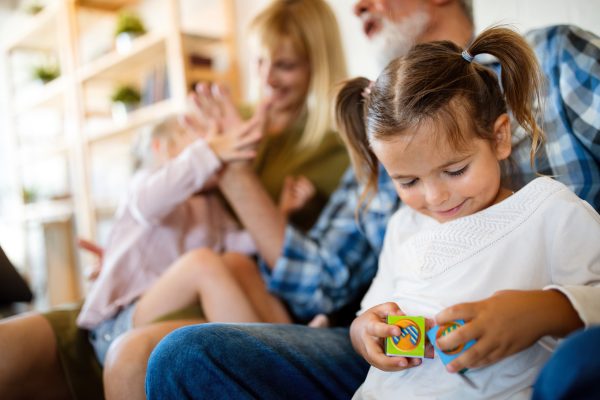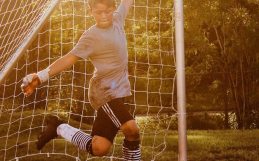Why SEL education is ideal for your gifted child
Why SEL education is ideal for your gifted child
The joy of having a gifted child comes with many challenges. Gifted children generally tend to perform a lot better than their peers in academics, but they might experience difficulties with other aspects of their development, such as social interactions, emotional management, and asynchronous development. These difficulties may lead to anxiety, social isolation, self-esteem issues, and depression.
To face and successfully handle these challenges, you need to provide your child with the proper environment for learning. Social and Emotional Learning (SEL) academic programmes are ideal for addressing every aspect of your child’s gifted nature: from boosting and further promoting their already enhanced academic and intellectual capacities to helping them grow and manage their emotional, social, and self-management needs so that they develop into a confident, balanced, inherently happy and gifted adult.


Giftedness and its challenges
Generally, a child is considered gifted when they have the ability to perform at a higher level than their peers, as well as at a higher level than what their age, experience, and environment would reasonably produce. Gifted children may perform at that higher level on one, several, or all academic domains.
Because of this characteristic, gifted children experience asynchronous development: this means that gifted children experience different rates of development in different aspects of their self. For example, they may be a lot more advanced in their cognitive development than in their emotional or physical ones. A simple example of this would be a gifted child that understands writing but may not yet have developed the fine motor coordination skills required for writing, resulting in frustration when they try to write but experience physical difficulty in handling the pencil and paper. Or they may understand challenging concepts, such as that of death, a lot earlier than their emotional capacity to handle this understanding.
Gifted children also experience different interactions with their environment. They may find themselves without intellectual peers in school, since classes are age-graded, and the school material may be boring or too easy. This can lead to frustration and acting out, a need for perfectionism coupled with impatience when they don’t master a task immediately, and they may experience higher amounts of stress than other children their age.
All these issues can be addressed with a proper educational programme and environment. That’s why SEL, Social and Emotional Learning programmes, are ideal for creating a constructive, gratifying, and cognitively stimulating educational environment for your gifted child.
What is SEL?
SEL (Social and Emotional Learning) is defined as an integrated process through which students acquire self-management skills, self-awareness, social/relationship skills, social awareness, and responsible decision-making skills.
In essence, SEL programmes will equip your child with the vital soft skills necessary to promote fruitful, meaningful interactions with their environment, feel self-confident and assertive, and enhance the potential for their future careers in any industry they choose.
SEL is designed to empower students and teach the necessary skills to children and their families for a successful academic career and a balanced, healthy emotional and mental experience.


SEL for the gifted child
Because SEL focuses on socio-emotional aspects of a child’s development together with academic and intellectual advancement, it is especially suitable for gifted children and the challenges they face.
In particular, SEL will help gifted children maximise their potential while minimising or eliminating emotional and social issues they may be experiencing through the structured teaching of interpersonal skills and self-management, which improves self-esteem.
For example, when it comes to perfectionism and the gifted child’s need to do everything perfectly, to maintain high performance, SEL programmes will teach healthy perfectionism: how to perform in the best possible way with the tools, skills, and information available at any given time; to set high standards but to also be aware that the requirement is to achieve them, not only to achieve them at the first attempt.
Gifted children are introduced to proper etiquette and social skills so that they can enjoy being included by their age peers as well as their intellectual peers. This is achieved by teaching the gifted child to recognise and come to terms with emotions in themselves and others, as well as the appropriate way to manage them and respond to them behaviourally.
At the same time, SEL helps provide the necessary academic and intellectual stimulation that will keep a gifted child engaged in their educational environment without experiencing boredom or isolation from their age peers. This will grant your gifted child constructive experiences with gifted as well as non-gifted peers.
This is only possible because SEL is inherently student-centric, seeking to identify individual needs and integrate them as leaders and contributors to their community while satisfying their intellectual needs and not letting their giftedness become a stressor.
What will your gifted child achieve with SEL?
Through rigorous intellectual stimulation and a thorough understanding of your gifted child’s emotional and social needs, SEL programmes will empower your child and teach them to:
![]() Acquire and maintain motivation for both academic and non-academic activities
Acquire and maintain motivation for both academic and non-academic activities
![]() Recognise emotions in themselves and others
Recognise emotions in themselves and others
![]() Handle emotions in socially constructive ways
Handle emotions in socially constructive ways
![]() Have self-confidence, self-esteem, and assertiveness without aggression
Have self-confidence, self-esteem, and assertiveness without aggression
![]() Leadership in their community
Leadership in their community
![]() High functioning in all areas of social, emotional, and academic performance
High functioning in all areas of social, emotional, and academic performance
Providing your child with the proper SEL programme means providing them with the tools they need to succeed while also having an affirming, rewarding social life.








